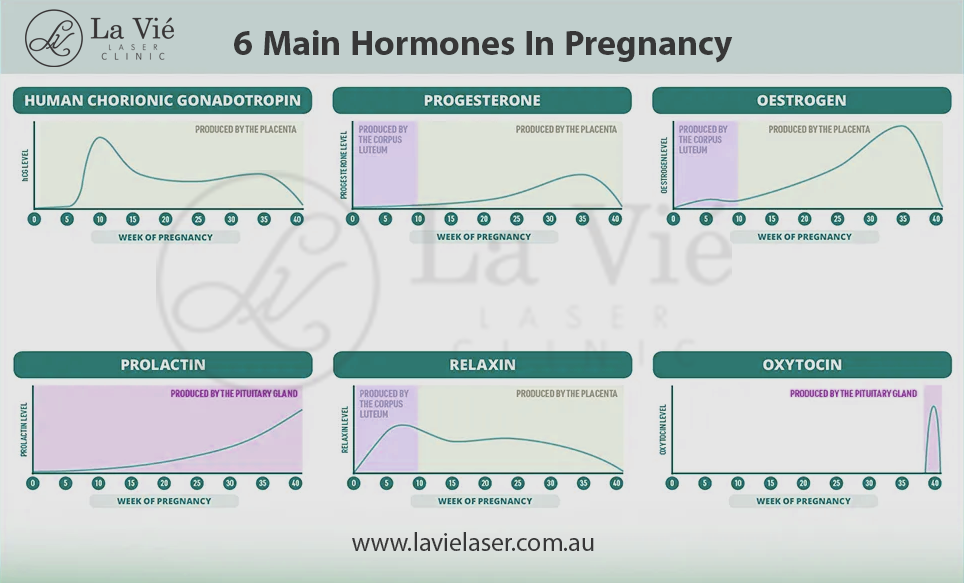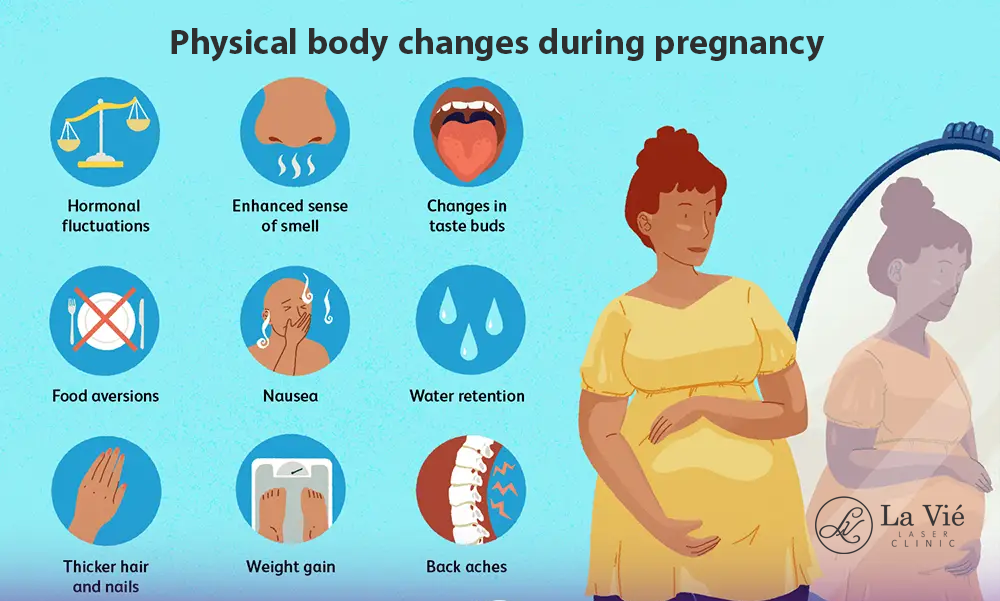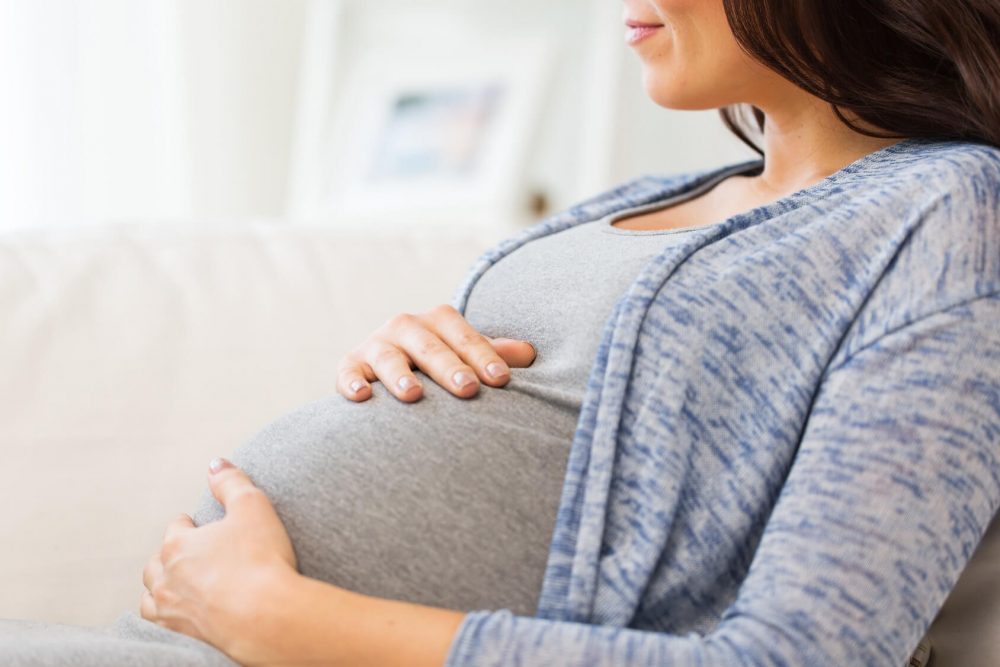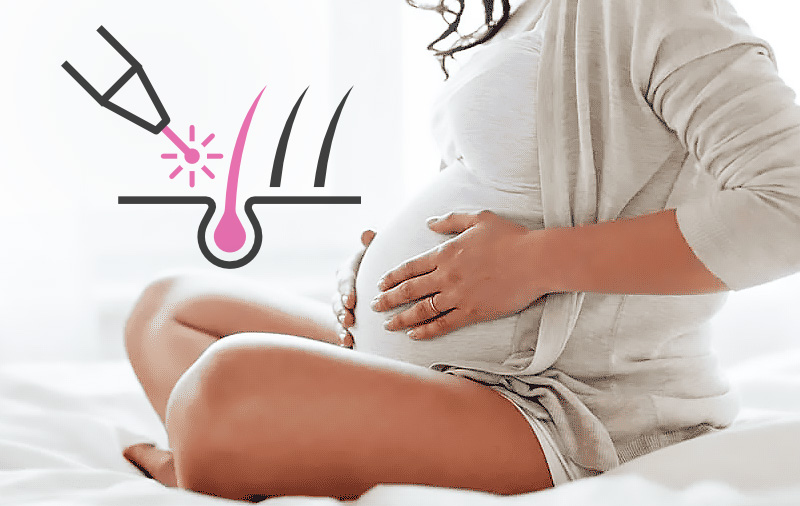Laser light rays penetrate the skin only a few millimeters. However, non-ionizing radiation can be absorbed by surrounding tissue. While laser hair removal has been proven to have no adverse effects on the patient, doctors are not sure how it could affect the fetus. Hair removal treatments can be a bit painful and some clinics use numbing cream.
Of course, since the body absorbs everything that is applied to the skin, it is not recommended to use this cream if you are pregnant. That can make this procedure inconvenient and maybe a good reason to wait until after the baby is born. The skin becomes more sensitive during pregnancy, so you may experience more pain, redness, or burning.
Does laser hair removal during pregnancy cause infertility?
According to the misconception that laser hair removal during pregnancy causes infertility, some people believe that laser hair removal causes infertility for a person! We must clearly say that laser hair removal does not cause infertility. There is absolutely no evidence that laser technology can cause you to be infertile or sterile. In the laser method, only the surface of the skin is affected by radiation, so at least the radiation from this method cannot reach any of your organs.
Return of lasered hair during pregnancy
The number of treatments required and the length of time between re-treatments depends on the length of your hair growth cycle. Because hormonal changes associated with pregnancy can stimulate the maturation of dormant hair follicles or shorten the growth cycle, some women find that regrowth appears much more quickly during pregnancy. Since laser hair removal can be expensive, why not wait until your hormones return to normal before undergoing treatment? Even with laser hair removal during pregnancy, sometimes this unwanted hair returns in pregnant women after the laser.
Is laser hair removal dangerous during pregnancy?
There is no research or evidence on the safety of laser hair removal during pregnancy. Because laser hair removal works by heating the hair follicles, there is a theoretical risk of harming the fetus. For this reason, it is better to avoid laser hair removal during pregnancy.
If you are pregnant and intend to have laser hair removal, talk to your doctor. They can help you determine if the procedure is safe for you.
| During pregnancy | complications of laser in pregnancy |
| The first trimester | The first trimester is the most critical time for the development of the fetus. Laser hair removal during this period can increase the risk of miscarriage, birth defects and other health problems |
| Second trimester | The second trimester is a safer time for laser hair removal, but there are still risks. Laser hair removal during this period can increase the risk of burns, scars and changes in skin pigmentation |
| Third trimester | Laser hair removal is not recommended during the third trimester of pregnancy because it can increase the risk of premature birth and other health problems for the baby. |
What is the effect of pregnancy on hair growth?
The effect of pregnancy on hair growth is caused by hormonal changes in women’s bodies. These hormonal changes can affect the growth of hair on a woman’s head and body.
One of the most common changes that women experience during pregnancy is increased body hair growth. This is due to the increased level of the androgen hormone, which is responsible for hair growth. Androgens are produced by both men and women, but are usually produced at higher levels in men. During pregnancy, androgen levels can increase, which can lead to increased body hair growth.
The growth rate of a woman’s body hair during pregnancy varies from person to person. Some women may notice a slight increase in hair growth, while others may notice a significant increase. The areas of the body that are most affected by increased hair growth during pregnancy are:
the face
chest
belly
back
In most cases, the increase in body hair growth that occurs during pregnancy is temporary. After the baby is born, androgen levels usually return to normal and body hair growth slows down or stops altogether.

Body changes during pregnancy
Women’s bodies undergo many changes during pregnancy. Some of these body changes in pregnancy are physical, while others are emotional or psychological.
Physical changes
Increase in blood concentration: Blood concentration in women’s body increases by about 50% during pregnancy. This extra blood is needed to supply oxygen and nutrients to the developing fetus.
Increase in heart rate: Women’s heart rate usually increases around 10-15 times per minute during pregnancy. This is because the heart has to work harder to pump blood around the body.
Increased breathing: Women’s breathing rate usually increases by 10-15% during pregnancy. This is because the lungs have to work harder to provide the oxygen the baby needs.
Increased body temperature: A woman’s body temperature usually increases by about 1 degree Fahrenheit during pregnancy. This is because the body produces more heat to help the baby grow.
Weight gain: A woman usually gains between 12 and 17 kilos during pregnancy. This weight gain is due to the growth of the fetus, placenta, amniotic fluid and mother’s body.
Changes in skin and hair: A woman’s skin may become more sensitive and her hair may become thicker during pregnancy. These changes are due to hormonal changes that occur during pregnancy.
Changes in breasts: Women’s breasts usually become larger and more sensitive during pregnancy. This is because the breasts are preparing to produce milk for the baby.

Emotional and psychological changes
Mood swings: Usually, women experience mood swings during pregnancy. These mood swings are due to hormonal changes that occur during pregnancy.
Feelings of anxiety and stress: Also, women usually experience feelings of anxiety and stress during pregnancy. These feelings are due to many changes that happen in a woman’s life.
Feeling happy and excited: However, many women also experience feeling happy and excited during pregnancy. These feelings come from the anticipation of meeting their new baby.
It is important to remember that the impact of pregnancy varies among women. Some women experience more changes than others.
Is laser harmful for breastfeeding?
There is no evidence that laser hair removal is dangerous for breastfeeding women, so it cannot be claimed that laser hair removal is harmful for breastfeeding. However, it’s always a good idea to talk to your doctor before having any type of cosmetic procedure, especially if you’re pregnant or breastfeeding.
In rare cases, laser hair removal can cause side effects. Complications such as:
burn
scar
Changes in skin pigmentation

How long can you get pregnant after laser hair removal?
While there is no evidence that laser hair removal affects your chances of getting pregnant, successful hair removal results can take several treatments and several months to achieve. If you are considering treatment while trying to conceive, talk to your doctor before starting. Laser hair removal can be unpleasant and uncomfortable later in pregnancy, especially on sensitive breasts or private areas (which should be avoided anyway). Since it usually takes between 6 and 12 months to achieve full results, you should consider the length of the commitment before you begin.
Stopping treatment during pregnancy does not prevent progress. If you have already started a series of treatments and then find out you are pregnant, we recommend postponing the rest of your sessions until after delivery.
When is the right time for laser hair removal after pregnancy?
We already mentioned that during pregnancy, due to fluctuations in the body’s hormone levels, body hair growth increases or decreases outside of the normal state. Therefore, it is better for women who intend to do laser to wait until after childbirth, usually between 3 and 6 months, until the level of hormones returns to normal. A more accurate recommendation is to consult your doctor about the best time for the laser.
Is laser hair removal right during pregnancy?
We all want to look and feel our best. If the physical changes during pregnancy make you feel less than optimal about yourself, try to be patient and remember that this temporary sacrifice is worth it for your and your baby’s health. After giving birth and getting ready to say goodbye to unwanted hair growth, get ready for laser hair removal.

